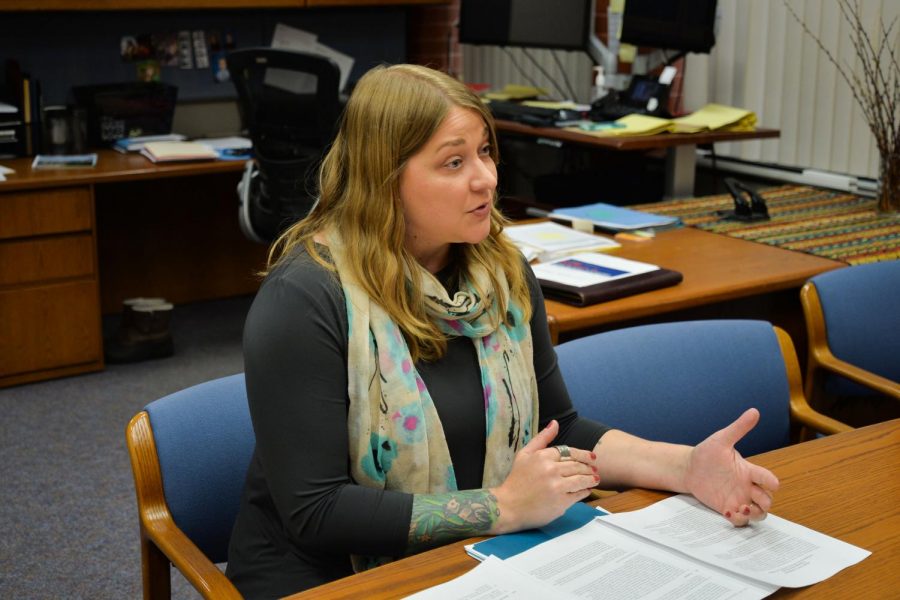New regulations change scope of WSU’s Title IX jurisdiction
Regulations take effect Aug. 14; feedback on changes due June 24
JOEL ROEBER | DAILY EVERGREEN FILE
Holly Ashkannejhad, director of the Office of Civil Rights Compliance and Investigation, said the new Title IX regulations decrease the number of complaints that are considered Title IX cases.
June 19, 2020
The U.S. Department of Education’s updated Title IX regulations to narrow Title IX cases and decrease cases that would require an institution’s response.
Holly Ashkannejhad, director of the Office of Civil Rights Compliance and Investigation, discussed the new regulations during CRCI’s online forum on Thursday. She also explained the regulations’ impact on WSU.
“The real impact of these regulations is it decreases the number of complaints that are considered Title IX cases,” she said. “It decreases instances requiring an institutional response.”
In November 2018, the DOE proposed rules as to how schools should address sexual harassment and sexual misconduct complaints. Ashkannejhad said the DOE received more than 124,000 comments on the proposed rules, which were used to develop the DOE’s Title IX Final Rule.
Under the new regulations, there is now a higher standard for determining sexual harassment, Ashkannejhad said.
Title IX’s Final Rule defines sexual harassment as “unwelcome conduct determined by a reasonable person to be so severe, pervasive, and objectively offensive that it effectively denies a person equal access to the school’s education program or activity.”
Quid pro quo harassment, sexual assault, stalking, dating and domestic violence constitute sexual harassment as well, according to Title IX’s Final Rule.
Ashkannejhad said another change in the regulations is that the DOE defined what is considered sexual assault. The DOE defined it as “an offense that meets the definition of rape, fondling, incest, or statutory rape as used in the FBI’s [Uniform Crime Reporting] program.”
Although the DOE did not define consent, she said WSU currently provides a definition for consent in its student conduct code.
Under these new regulations, institutions are only required to respond to complaints if they had actual knowledge, which means the institution’s Title IX coordinator or deputy coordinator received a report or complaint. This also includes instances where any WSU official receives a report or complaint from a student.
Institutions are now only required to look at complaints against a person that occurred within an institution’s educational program or activity. These requirements restrict the type of complaints institutions are required to respond under Title IX, she said.
When receiving a Title IX complaint, the Title IX coordinator must respond promptly and discuss supportive measures with the complainant. She said the new regulations also require the coordinator to explain the process when filing a complaint and not be deliberately indifferent.
“These specific requirements are pretty consistent with what our university is currently doing,” Ashkannejhad said. “Any report to our [CRCI] office receives outreach.”
With the new regulations, institutions are required to maintain records regarding sexual harassment investigations and evidence for seven years. Materials that are used to train Title IX coordinators and investigators involved in the informal resolution process must be available for the public, she said.
These new regulations will be in effect Aug. 14, she said. Institutions receiving federal funding are required to comply with these regulations.
Ashkannejhad said the university will be updating policies, manuals and its student conduct code with these regulations in mind. Title IX information will be added to handbooks.
Individuals can submit their feedback by emailing CRCI or by completing CRCI’s online feedback form. Feedback submission is due June 24. More information about Title IX can be found online.

















